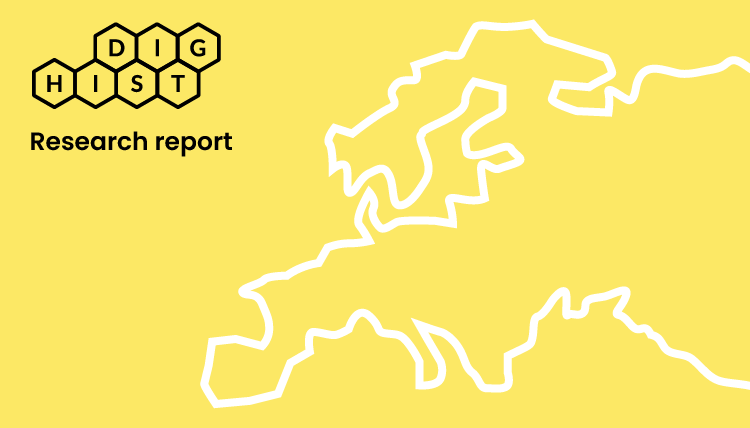Teaching history is different in every European country. In Poland, Spain and Belgium both the history and social sciences curricula vary a lot as do the methods used to teach those subjects. What challenges do the history and social sciences teachers face and how do they deal with them in the three countries? What methods and tools do they use during their lessons? The Digital History. Research report gives answers to those questions.
Today the role of history and social sciences teachers is crucial, as they help students to understand the world and its mechanisms. As polarization is growing we need to provide our students with adequate tools to analyze and understand complex historical processes and how they influence current socio-political situation. It is crucial to encourage school communities to reflect on complex phenomena, strengthen critical thinking and draw fact-based conclusions.
The Digital HIstorytelling project covers the area of 20th century European history teaching in three very different European countries: Poland, Belgium and Spain. It helps to tackle complex social, political and economic problems, to look at them from different perspectives and to introduce them to students in an innovative way, as a result building a common European identity.
In order to better understand and respond to the needs, a thorough research was conducted covering history teachers’ perceptions of their subject, the differences and similarities in the curricula and the methods used during class.
Digital HIstorytelling. Research report is based on desk research on the use of digital tools and teaching methods and how they meet the needs of GenZ students, complemented by in-depth interviews with history teachers in the three partner countries.
Below you will find graphic materials based on the research, gathering common key topics and perspectives in history teaching for Poland, Spain and Belgium:
- a map of key common topics in 20th century European history teaching
- a map of common underrepresented perspectives in 20th century European history teaching
- a detailed table with common key topics in teaching 20th century European history
The findings gathered in the report will be used to create materials for history teachers.
The Digital Hi-storytelling program is conducted by the School with Class Foundation in cooperation with Asociación Smilemundo (Spain) and the King Baudouin Foundation (Belgium) and funded by the European Commission’s Erasmus+ programme fund.
